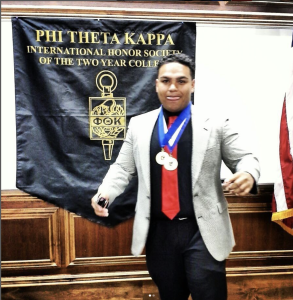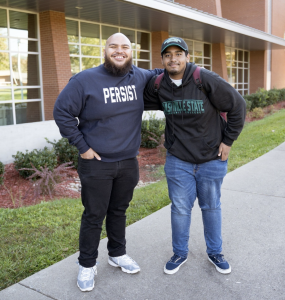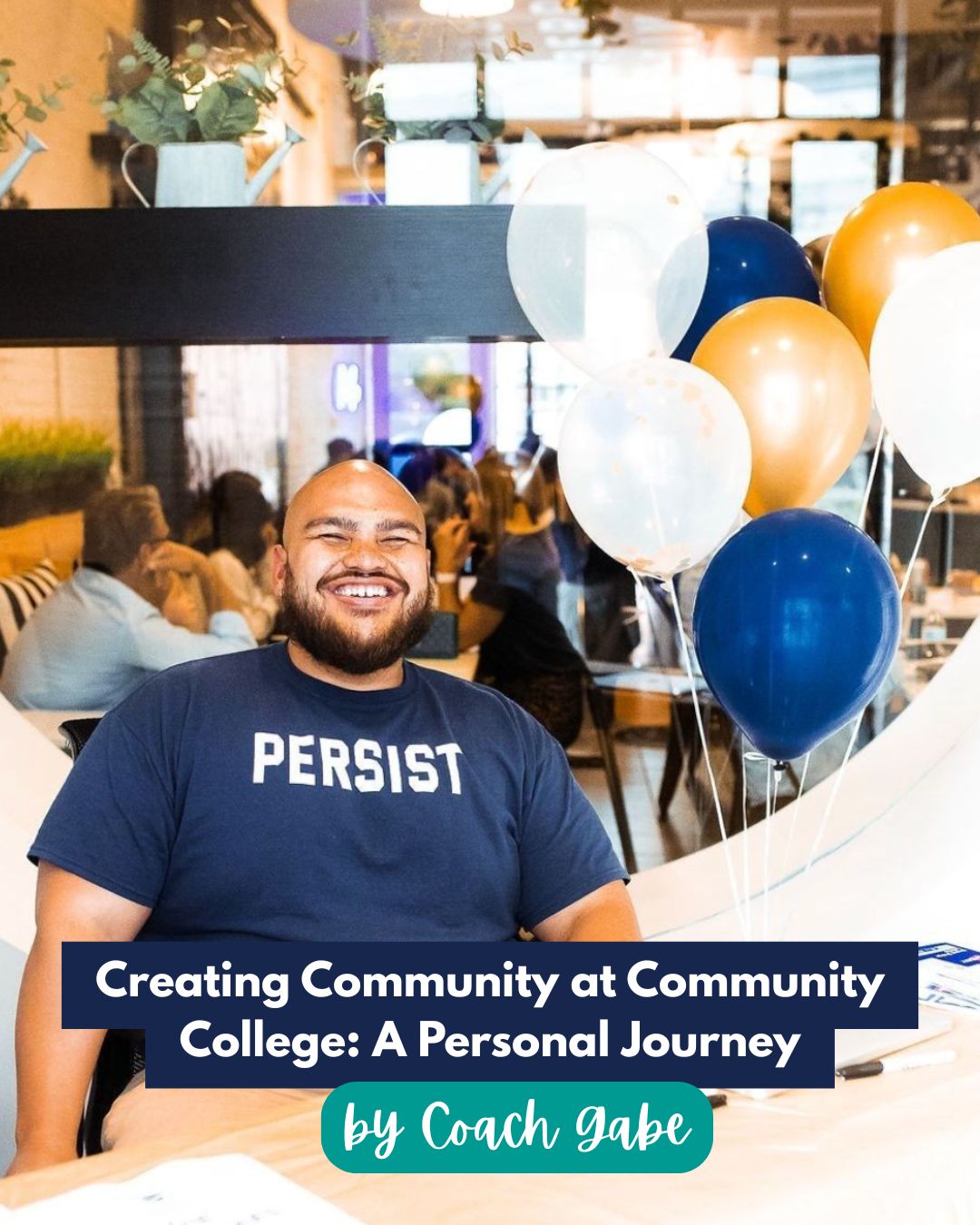Written by Gabe Marrero, Director of Data and Technology at Persist Nashville
Finding My Start
As a former community college student, I know firsthand how critical it is to create spaces where students feel seen, supported, and empowered. My journey wasn’t linear, but it was transformative, and it all started with community.
Despite being academically prepared for a four-year university, I enrolled at Calhoun Community College due to personal circumstances. I had just lost my mother, moved in with my dad, and graduated high school early. I was grieving, overwhelmed, and unsure of my future. Navigating FAFSA was a challenge, and I didn’t have strong study habits. But I had one mission: get to the University of Alabama.
Listen to Gabe’s Story HERE
Adjusting to College Life
I walked into my first college class, Political Science with Dr. Waymon Burke, feeling nervous and out of place. I bought all my materials early, using my first Social Security checks after my mom’s passing. I found comfort in the structure: classes two days a week, working 20+ hours at a part-time job, and slowly adjusting to college life.
Initially, I didn’t feel like I belonged. I missed the community I had in high school. Then I started recognizing familiar faces, people from my large high school graduating class that I rarely, if ever, talked to. I began saying hi, sitting near them or with them in classes, and hanging out between classes. These small interactions became my first taste of community. Coming from a military family, I was used to introducing myself and adapting to new environments. That helped me push through the discomfort and start connecting.
Discovering Leadership Through Phi Theta Kappa

After earning a 4.0 GPA my first semester, I was invited to join Phi Theta Kappa, the community college honors society. At first, I thought it was a scam, but when I saw they offered scholarships, I joined. Through PTK, I reconnected with my pre-calculus professor, who was the chapter advisor.
She was someone I trusted, and I started attending meetings even when I didn’t fully understand what the organization was about.
I learned that PTK was focused on service projects, research, and community impact. I leaned in, volunteered, and eventually stepped into leadership roles at both the college and state levels. I never felt ready, but I embraced the opportunities anyway. That’s a lesson I carry with me: if something feels like a good opportunity, take it. Even if it doesn’t work out, you’ll learn something valuable.
Lessons on Community and Belonging
For many students, the hardest part is the fear of failure. That fear keeps people from trying to build community. But community is messy. People might annoy you or say things that rub you the wrong way. As long as it doesn’t violate your core values, embrace the differences.
I was a clean-cut kid, but I learned great music from the emo and artsy students. I learned about sneakers and style from others. All of it shaped who I became. Reinventing yourself, even 20 times, is part of the college experience. The last part of reinventing myself in college was shaving my own head, which has stuck with me into my early 30s.
Finding Purpose Beyond the Classroom
Don’t take yourself too seriously. Your grades matter, but so do the people around you. Community college might feel like “high school+,” but it’s a chance to try new things, be bad at things, and grow. You might open doors for others just by showing up.
One of the best things about my time in community college and transferring to my dream school, The University of Alabama (Roll Tide!), was that I had only one class larger than 40 students my entire college career. I was able to get to know my professors, visit their offices if I had questions, and build relationships that have led me to where I am today.
Why Community Matters
Community colleges serve a diverse and often underserved population. Yet:
-
The average community college graduation rate is just 35.17%
-
The transfer-out rate is 8.98%
-
The retention rate is 60.68% for full-time students and 39.39% for part-time students
These numbers reflect the urgent need for intentional community-building, mentorship, and student support systems.
Investing in Students and Their Success
If we want to improve outcomes (beyond just putting more money in students’ hands), we must invest in:
-
Strong academic support for students who may not be academically prepared coming into college, paired with areas of interest. Students shouldn’t take only support classes alongside English or math their entire first semester.
-
Relationship building from the professor side. Taking the time to get to know students, even just a little, can make a difference in how a student feels in the classroom.
-
Student organizations that foster belonging.
-
Advisors and mentors who guide students through uncertainty.
-
Leadership opportunities that build confidence and skills.
Continuing the Story

My story is just one example, but there are thousands more waiting to be written. Let’s make sure they have the support they need to thrive.
At Persist Nashville, we believe every student deserves the chance to build community, find purpose, and graduate with confidence. Your gift helps make that possible by funding coaching, mentorship, and resources for first-generation and underrepresented college students across Nashville.
Join us in supporting student success today: givebutter.com/persist-nashville-inc
